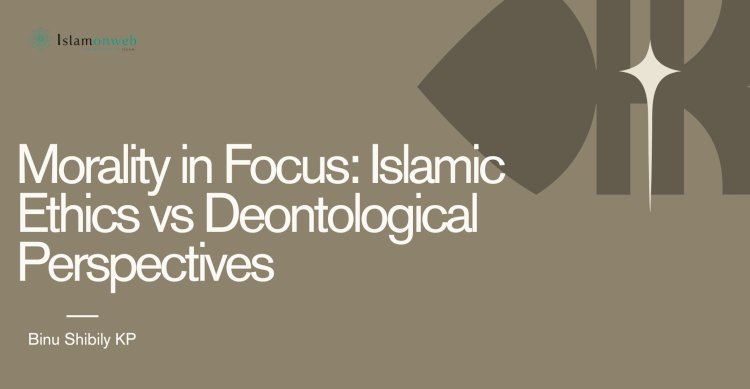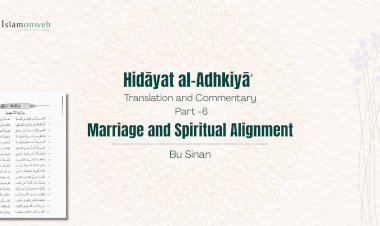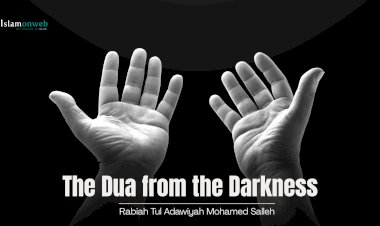Morality in Focus: Islamic Ethics vs Deontological Perspectives
Ethics is a fundamental aspect of human life that guides our behavior and moral decisions. It encompasses what is considered right or wrong, good or bad. Studying moral philosophy can enhance our understanding of morality. It helps us clarify our moral beliefs when making judgement, leading to a more thoughtful and well-reasoned perspective. Additionally, it offers us the opportunity to enhance our critical thinking abilities. It teaches us to approach problems in a logical and rational manner, enabling us to tackle moral dilemmas with a dear perspective.
There are many moral philosophical branches which construct the base for moral understanding, particularly normative branch of ethics. It provides guidelines for moral behavior. It determines what is right or wrong, good or bad. Religious ethics and philosophical theories like utilitarianism, deontology and virtue ethics fall under this branch, offering diverse perspectives on how individuals should approach ethical dilemmas.
This article focuses on Islamic ethics and deontology. Islamic ethics is a rich and multifaceted field that delves into the moral principles and values within Islam. In simple terms, the ethics based on the Islamic teachings is known as Islamic ethics. This ethical system draws extensively from the Qur'an and the Hadith, making these fundamental sources its cornerstone. Hence, it is also known as Scriptural morality. However, Islamic ethics is not solely reliant on scriptural sources. The contributions of Islamic jurists, theological insights and philosophical ethics make the Islamic ethical system dynamic and enduring as a discipline.
On the other hand, Immanuel Kant, a renowned German philosopher, played a significant role in shaping the Enlightenment era. He is known as one of the greatest proponents of Deontology. Kant's moral philosophy, as outlined in his Critique of Practical Reason, aims to explore the concepts of goodness, right and wrong, duty, and the implications of the moral understanding. According to him, the human reason serves as an individual source of moral principles, unaffected by our desires and capable of guiding our actions.
Deontological theories focus on the individuals' action and rather than consequences of those actions. So, it is also known as the non - consequentialist theory. This school of thoughts emphasizes the relationship between duty and the morality of human behavior. Expressions like ''duty for duty’s sake'' and ''honesty is good in itself'' embody its essence.
A central concept in Kantian Deontology is the Categorical Imperatives, a set of moral principles that are universally applicable and binding on all rational beings. These imperatives are derived from practical reason and aim to guide individuals in making ethical decisions. These are the commands that must be obeyed regardless of our personal interest. Categorical imperatives are categorical because it admits no exceptions and is absolutely binding, inescapable, it is imperative as it commands how one ought to act unconditionally.
Despite their distinct origins, they share some convergences and divergences on several philosophical foundations. One prominent area of alignment is the emphasis on moral autonomy and free will. Islamic scholars assert that Allah's decree is absolute, though they believe in free will too. The term "Ikhthiyar" represents the free will of creatures in both traditional and modern texts of Islamic theology. Several Quranic verses and Hadiths which shed light on this concept. Similarly, Kant emphasized that if a person is acting according to any compulsions, their actions shouldn't be considered morale. The punishment for actions is vague and illogical, if a human is not acting with free will. This idea mirrors some principles found in Usul al-Din (the principles of religion.
The sanctity of life is another principle where two frameworks align. Islamic ethics views life as a divine trust, with strict injunctions against taking life unjustly. Islam teaches that only Allah has the ultimate authority over life and death. Islam also emphasizes the duty to preserve one's own life and health, as well as the lives and rights of others. The sanctity of life is the one of the cores of Five Necessities of Maqasid al Shariah, where many scholars like Imam Razi, Imam Zanjani, Imam Qarafi, Imam Bailavi, Sheikh Ibn Taymiyyah, Imam Zarkashi, Imam Shoukani, viz., prioritize preservation of life over the preservation of Religion. In Deontology, the second maxim of categorical imperative is the principle of humanity, "So, act that you treat humanity in your own person and in the person of everyone else always at the same time as an end and never merely as means". This echoes the sanctity of life principle.
Both frameworks also legalize capital punishment under specific circumstances. The Islamic perspective on capital punishment is multifaceted, and rooted in the religious primary sources. Within Sharia, there are specific crimes that can warrant capital punishment, falling under three categories: Qisas, Hudud and Ta’zir in rare cases. Kant, in his 'Metaphysical Elements of Justice', similarly upholds that "Even if society were to dissolve itself by common agreement of all its members (for example, if the people inhabiting an Island decided to separate and disperse themselves around the world), the last murderer remaining in prison must first be executed, so that everyone will duly receive what his actions are worth and so that the blood guilt thereof will not be fixed on the people because the failed to insist on carrying out of the punishment; for if they fail to do so, they may be regarded as accomplishes in this public violation of legal justice".
The primary divergence between Islamic ethics and Deontology lies in their foundational sources. Islamic ethics is inherently theocentric, deriving its principles from divine revelation. The Qur'an and the Hadith serve as primary sources of moral guidance, offering a comprehensive and immutable framework. In contrast, Kantian is rooted in rationalism, rejecting the need for divine authority in moral reasoning. Instead, it posits that morality arises from the rational capacity of individuals to discern universal principles. The third Axiom is the principle of autonomy. "... that the will through its maxim could at the same time regard itself as legislating universally". This maxim states that one should always act in accordance with their own rational will, rather than being influenced by external factors or desires.
However, Kant also argues that morality also provides a basis for belief in God. For, Kant, God is necessary for "The Highest Good" and for a necessary sovereign. What we truly seek is what Kant refers to as "The Highest Good", a world where people are both virtuous and happy. He believes that every moral being belongs to a special community called the Kingdom of Ends. However, he distinguished between regular members of this kingdom and the one who holds the highest position, known as "Sovereign". While both the members and the sovereign are responsible for creating moral laws, only the members have specific duties to fulfill. This is because the sovereign possesses "Holy Will" and is always guided by reason, never tempted to act against it. According to Kant, only God can be sovereign since sovereign must be completely independent and possess the power to fulfill their will without any limitations.
Another significant point of divergence is their views on punishment. Whether a criminal is punished 'in order to' (rehabilitive) or 'because of' (retributive). Deontologists follow the retributive perspective of punishment, i.e., 'because of'. The person who commits the wrongdoing is guilty and deserves to be punished. Society has a responsibility to punish the criminal for the crime they have committed. The purpose of the punishment is not to improve society or the criminal in the future. Kant says in 'Metaphysical Elements of Justice' that "Judicial punishment can never be used merely as a means to promote some other good for the criminal himself or for civil society, but instead it must in all cases be imposed on him only on the ground that he has committed the crime". In contrast, Islam adopts a more balanced view of punishment, synthesizing both the retributive and rehabilitive perspective. A criminal is punished because he/she has committed the crime so he/she deserves it. At the same time, it promotes some other good for civil society as well. Allah says: "And there is for you in legal retribution (saving of) life" (2:179). This verse highlights the preventive and reformative aspects of punishment in Islamic ethics, ensuring that justice is served while deterring future crimes and safeguarding societal well-being.
Furthermore, their views on the nature of obligation and inherent goodness differ. Both the theories follow obligation of action but in different perspectives. In Deontology, an action is considered morally good because it possesses inherent goodness. This is why certain actions are considered obligatory. In Islamic ethics, however, actions are not inherently good or bad. Eminent scholars of the Asharite school such as Imam Thafthazani, Imam Gazzali and Shaikh Saeed Ramadan Al Buti argued that the good and evil are not self-sustaining but attributed. No action itself determines good or evil. Allah is the creator of everything even the good and evil are a part of his creation. Anything or any action can't be good or bad unless almighty creates the attribution on it. So, the actions are obligatory only because of Allah's command.
Another contrast is in their flexibility. The main criticism against Deontology is its rigidity in nature. There will be no changes in any situations and circumstances in the duties and ethical actions which Deontology puts forward. As Deontology focuses purely on duty and makes no sense with consequences, Deontology seems more rigid than any major ethical theories. Islamic ethics is strict in nature but flexible to an extent. Almighty Allah commands the moral duties in a very strict manner but it allows flexibility in exceptional cases. For instance, the prohibition of alcohol can be waived in situations of dire necessity (Darurah), showcasing its adaptability.
In conclusion, Islamic ethics and Deontology concentrate on the principles and duties that guide human behavior. Both highlight the significance of acting rightly, regardless of personal interests or outcomes. However, Deontology is based on legal reasoning and universal principles, Islamic ethics is deeply rooted in the Qur'an and Hadith. Despite their differences, both frameworks strive to encourage justice, fairness and the well-being of the society. By understanding these similarities and differences, we can appreciate the rich perspectives they offer for leading a morally responsible life.
About the author:
Binu Shibily KP holds a BA in English Literature from the University of Calicut and has completed a Wafy degree in Islamic Studies from PMSA Islamic and Arts College. Additionally, a Wafy PG in Islamic Theology was completed at Wafy Campus, Kalikavu, both affiliated with the Coordination of Islamic Colleges. The PG dissertation, titled "Islamic Ethics and Deontology: A Critical and Comparative Study," reflects a deep interest in ethics, theology, and English literature. Currently, Binu is pursuing an MA in English Literature from Indira Gandhi National Open University.
References
1. Acton, H B, Kant’s Moral Philosophy, Macmillan Educaton
2. Buroker, Jill Vance, Kant’s Critique of Pure Reason an Introduction, Cambridge University Press
3. Evans, C Stephen, A History of Western Philosophy from the Pre-Socrates to Post Modernism, InterVarsity Press
4.Fakhry, Majid. Ethical Theories in Islam.
5.Kant, Immanuel, Foundations of the Metaphysics of Morals, Lewis White Beck, Bobbs- Merril
6. Sullivan, Roger , An Introduction to Kant’s Ethics, Cambridge University Press
7. Tannsjo, Torbjorn, Understanding Ethics: An Introduction to Moral Theory, Edinburgh University Press
8. الاقتصاد في الاعتقاد, أبو حامد الغزالي
9. البحر المحيط في أصول الفقه، أبو عبد الله البدر الدين محمد بن عبد الله بن بهادر الزركشي، دار الكتبي
10. التمهيد في تخريج الفروع على الأصول، جمال الدين أبو محمد عبد الرحيم بن الحسن الإسنوي، تحقيق د. محمد حسن هيتو، مؤسسة الرسالة – بيروت
11. شرح العقائد النسفية, الإمام سعد الدين التفتازاني
12. كبرى اليقينيات الكونية, الدكتور سعيد رمضان البوطي
13. مجموع الفتاوى، شيخ الإسلام أحمد بن تيمية، مجمع الملك فهد لطباعة المصحف الشريف - المدينة المنورة – السعودية
Disclaimer
The views expressed in this article are the author’s own and do not necessarily mirror Islamonweb’s editorial stance.
























Leave A Comment